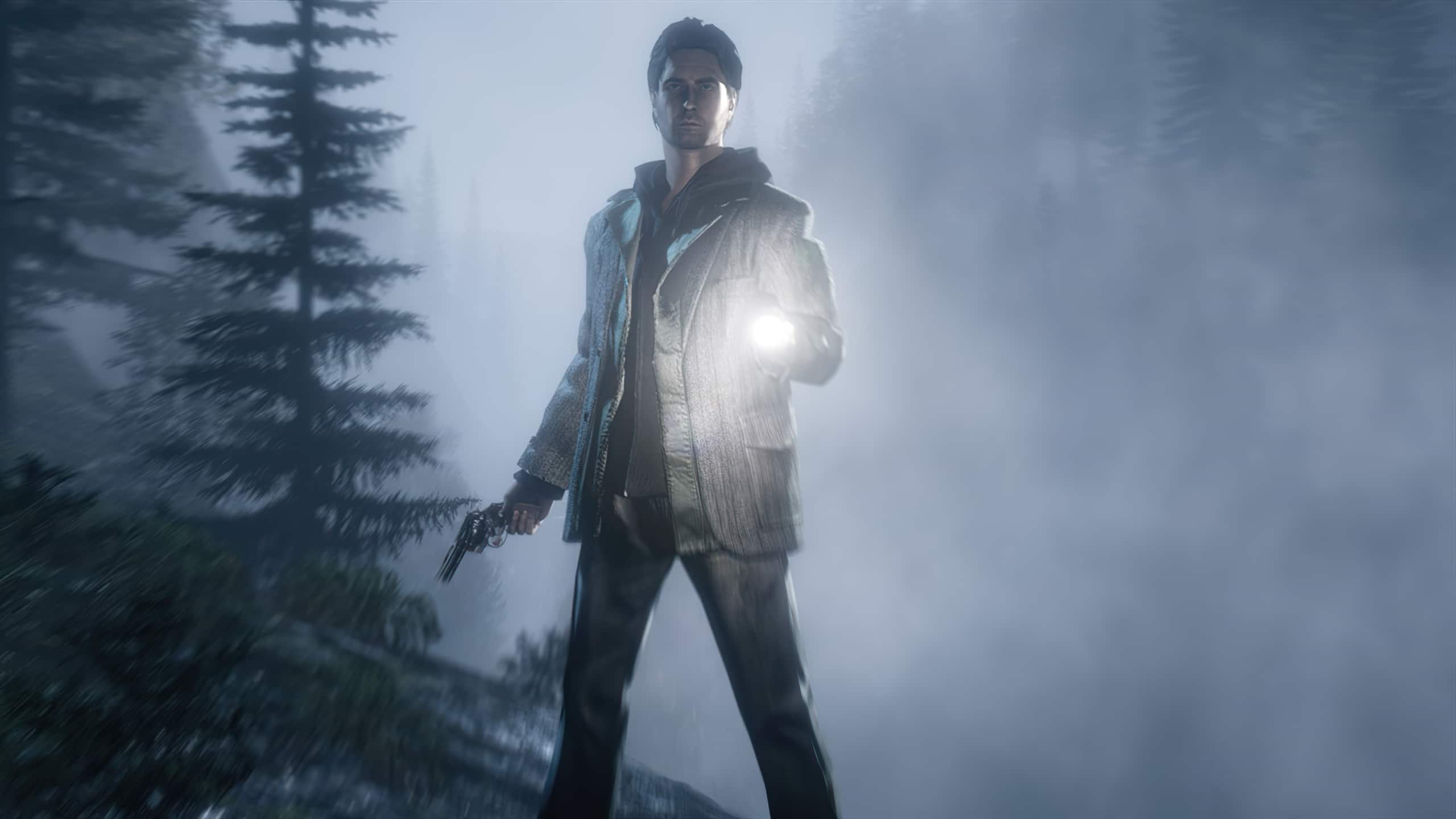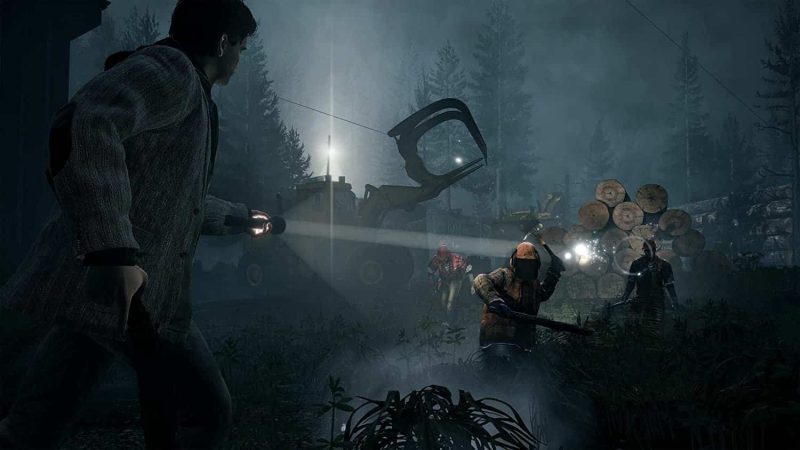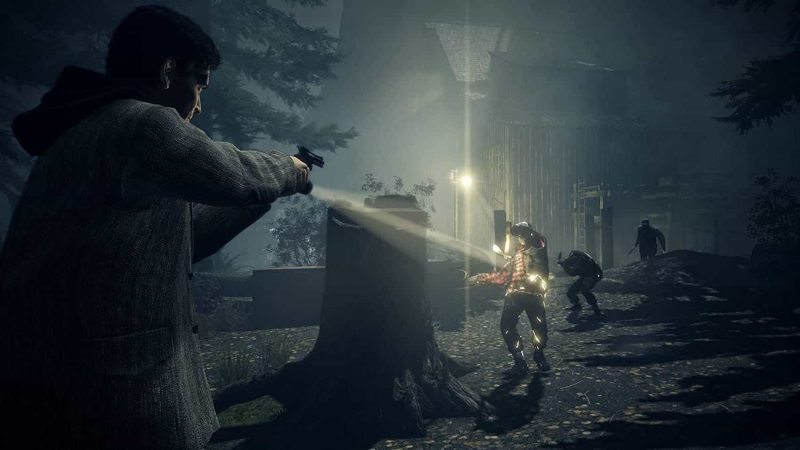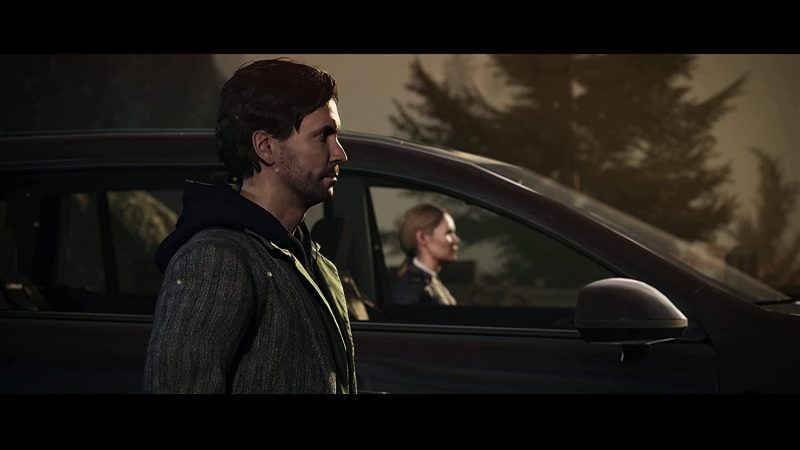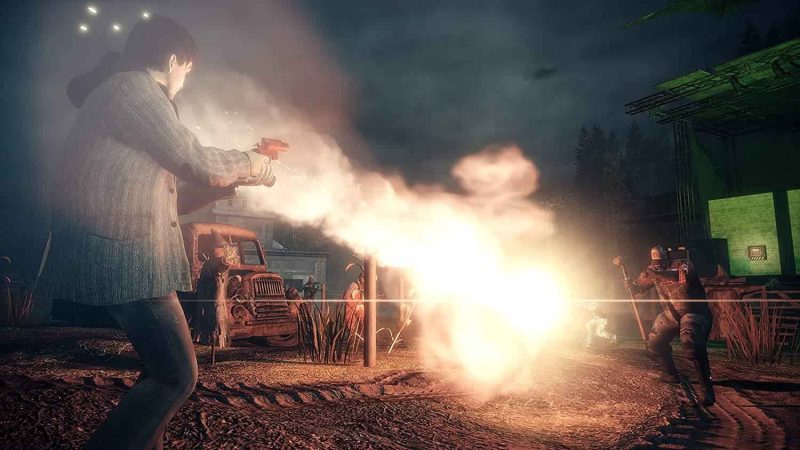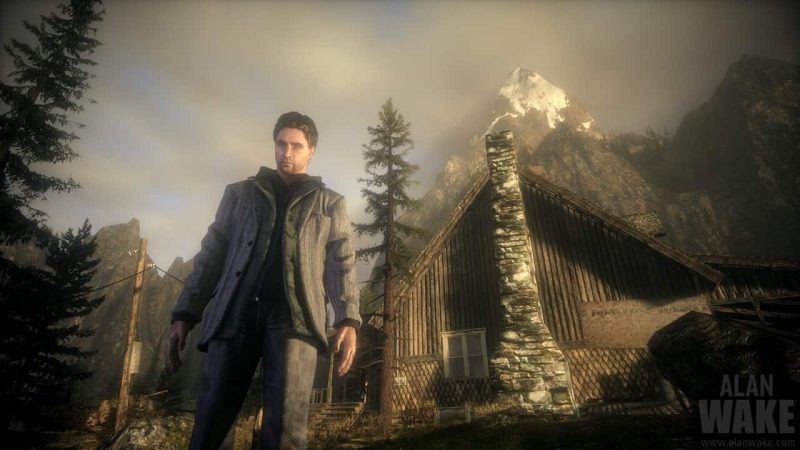Alan Wake Remastered PS5 Review – Alan Wake Remastered is a game that proudly wears its influences on its sleeves. From Stephen King to Twin Peaks, Remedy‘s cult horror classic oozes all manner of iconic horror tropes from every pore, although that’s by no means a bad thing.
Sure, there’s a few stumbles along the way, but there’s a lot to like about Alan Wake, now freshly remastered for PS5 more than a decade after its initial Xbox 360 debut. It’s packed full of scrumptious scenery to gawk at, its combat loop is crunchy and satisfying, and the pacing is pitch perfect.
Oh, and it also has Viking heavy metal in its soundtrack, in all its overblown awesomeness. As I said, there’s a lot to like about Alan Wake.
Alan Wake Remastered PS5 Review
Welcome To Bright Falls, Mr. Wake
Alan Wake is a hugely successful writer with a problem. For the past two years, he’s been suffering from a bad case of writer’s block, putting his hopes of penning a new masterpiece on ice. In hopes of getting a figurative kick up the arse, he and his wife, Alice, embark on a trip to the idyllic town of Bright Falls, Washington.
After a nightmare sequence that ostensibly acts as a tutorial for all the basic movements and a bit of combat, you’re thrust into the game proper, although the brown stuff doesn’t hit the fan immediately.
After spending a bit of time in the local diner – where the grumpy Wake is harassed by the locals, including an obsequious waitress – our troubled protagonist and his wife hit up their cabin, which is located on the banks of the ominously-named Cauldron Lake.
It’s here that things take a turn for the worse, as Alice soon disappears and Wake blanks out only to regain consciousness in a car wreck, losing an entire week in the process. Enter the Taken, shadowy possessed townsfolk who seem hell bent on hacking you to bits as you try and piece together what’s happened, stumbling across pieces of a novel that you don’t even remember penning along the way.
When Darkness Comes, Fight With Light
While Alan Wake doesn’t rewrite the rule book for third-person horror games – everything from its Resident Evil 4-style over-the-shoulder perspective to its cinematic qualities has been done to death in the past 15 years – it does add some interesting wrinkles to the formula that differentiates itself from the hair-raising rabble.
Wake’s primary weapon against the Taken is light, a concept that stretches beyond just combat. Armed with a flashlight (you later upgrade to more potent light sources), you’ll have to burn away the darkness surrounding your enemies as they slowly but inexorably close in on you, before finishing them off with your firearm.
This mechanic is the beating heart of Alan Wake’s gameplay. Your flashlight is most effective by holding L2 to focus the beam on your target, but this burns through battery life fast, meaning you’ll have to hit Triangle to slap in a fresh power source or risk having it slowly recharge, leaving you vulnerable.
You quickly realise that this deceptively simple mechanic hides a rewarding layer of strategy pulsing beneath its surface. It’s not just about knowing when to conserve your flashlight’s power or when to use it; enemies swarm you on mass, so you need to learn how to prioritise your foes – do you target the hulking, chainsaw-wielding nutter first or go for his weaker, faster axe-wielding accomplices?
Meanwhile, Wake’s standard pistol is complemented by shotguns and rifles, although flare guns and flash bags also come into play, albeit in limited supply, so you also have to consider when to expend these resources too.
All in all, combat in Alan Wake is punctuated by moments of panic-inducing terror, micro-managing, and a rewarding sense of accomplishment your shadowy foes are dispatched in a flashy spectacle. The controls work great too, making focusing your beam before switching to your chosen firearm a seamless task.
A Captivating Story With Perfect Pacing
The concept of light and dark also assimilates itself with Alan Wake’s plot progression. Night time sections are combat-heavy, involving you chasing down an objective – usually trying to reach a specific point or person – while day time segments drip-feed key narrative points, and at times, give you more freedom to soak up the sights of Bright Falls.
Remedy has adopted chapter-based progression, with each one ending like a TV show episode. This allows the developer to expertly pace the proceedings, knowing when to reign itself in and when to drop a key bombshell. You’re always left chomping at the bit for more after a chapter concludes.
This combined with the generous checkpoint system means that even shorter sessions in Alan Wake are satisfying, and the addition of manuscript pages — which provide insight on supporting characters and hint at events just around the corner — mean that the plot is always moving at a brisk pace, constantly giving you something to think about.
Above all, Alan Wake knows how to pace itself. Battles against the Taken rarely outstay their welcome, with the action shifting between moments of frantic action to tension-dripping silence, with only the faint echo of local wildlife and ambient music as company. It’s superbly done, standing shoulder-to-shoulder with the likes of Dead Space and Resident Evil.
Remedy also throws the occasional curveball at you; boss battles inject some freshness to combat, and one moment you could be fending off against a possessed bulldozer (yes, really), dodging darkness-infested objects, to dispersing a pack of ravenous ravens like a scene from The Birds on steroids.
An Everyday Protagonist Faced With Extraordinary Circumstances
As a hero, Wake is cut from the same cloth as Harry Mason from Silent Hill. He’s a writer, a regular bloke, and not a trained combatant or a physically capable man. This makes him quite relatable; I genuinely did feel for him with the increasingly bizarre situations that crossed his path, even though he’s prone to grumpy outbursts and can come across as a bit of a wanker.
Frustratingly, this aspect of Wake’s characterisation also rears its head most egregiously in gameplay. Wake is a rubbish sprinter; he wheezes like an old man after running for a bit, isn’t particularly fast anyway, and his movement feels clunky and odd.
It also doesn’t help that he occasionally slides off objects when climbing them (I tried to scale some rocks, only for Wake to climb, then inexplicably fall to his death) and he jumps like a toddler with the runs.
Don’t get me wrong, there’s no actual platforming sections in Alan Wake; but when you do have to clamber over something or hop over a gap, it’s cumbersome and prone to hiccups. Getting surrounded by foes is a bit frustrating at times too, due to an unreliable dodge mechanic and Wake’s reluctance to simply get a bloody move on. Annoying yes, but not at all game-breaking.
A Visually-Striking Game That Oozes Atmosphere
Bright Falls is ripe with stunning scenery. In the daytime, sunlight glistens through the trees and the authentic beauty of the area comes to life, be it the warmth of a cozy small-town diner to the bustle of the local police station.
At night, the darkness brings a certain malevolence to your surroundings, with trees toppling over and objects being hurled all over the place, as you flashlight illuminates a nightmarish quality to what was previously a sleepy, picturesque mountain community.
This juxtaposition of night and day is without a doubt one of the game’s biggest visual showpieces, and makes Bright Falls a character in its own right.
The lighting effects are particularly impressive thanks to the remastering treatment, and seeing Wake’s beam cut through the terrors of the dark forest or ransacked interiors is pure eye candy. Character models and textures also benefit from some PS5-powered spit and polish, which is nice to see.
Plenty Of Opportunity For Sight-Seeing
Despite its linear trappings, Alan Wake affords a surprising amount of opportunity to venture off the beaten track. Some areas are pretty wide open, allowing you to hoover up various collectibles on offer, which range from manuscript pages, coffee thermos’s, and hidden ammo caches.
You can even listen to the local radio station for some gossip and sample the game’s brilliant and eclectic soundtrack, and soak up the latest episode of Night Springs, a Twilight Zone-style TV show.
Meanwhile, outdoor sections also give you the chance to hop into vehicles and drive around Bright Falls in the daytime, no doubt remnants of Alan Wake’s original concept as an open-world survival title.
Yes, you’re still having to get from A to B to advance the story, but the fact you can explore, admire the scenery, and even collect optional items is a welcome addition. In fact, it’s these sections that really help to break up the flow of the narrative overall, acting as a time to catch your breath after the blood-pumping bombast of combat and set pieces.
When you throw in the two DLC chapters, The Writer and The Signal, which both flesh out the game’s story and continue the quality gameplay loop of the main campaign, you can’t really argue at the £24.99 asking price.
Overall, Alan Wake Remastered is a compelling slice of story-focused horror, combining gripping combat with expertly-paced storytelling. Some control elements feel a bit wonky, and occasionally the narrative tries to be too clever for its own good, but when all’s said and done, Alan Wake Remastered is easily one of the best horror games you can play right now on PS5.
Now Remedy, how about that sequel?
Alan Wake Remastered is available on PS5, PS4, PC, Xbox Series X/S, and Xbox One on October 5, 2021.
Review code kindly provided by publisher.
